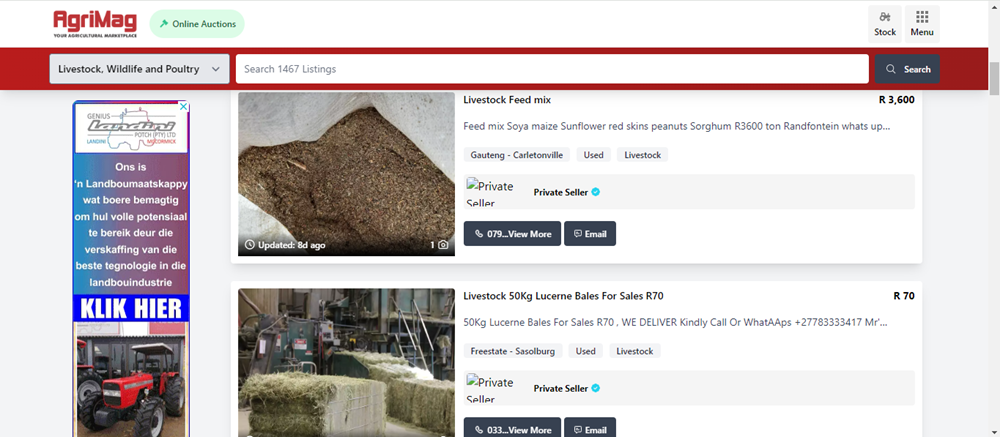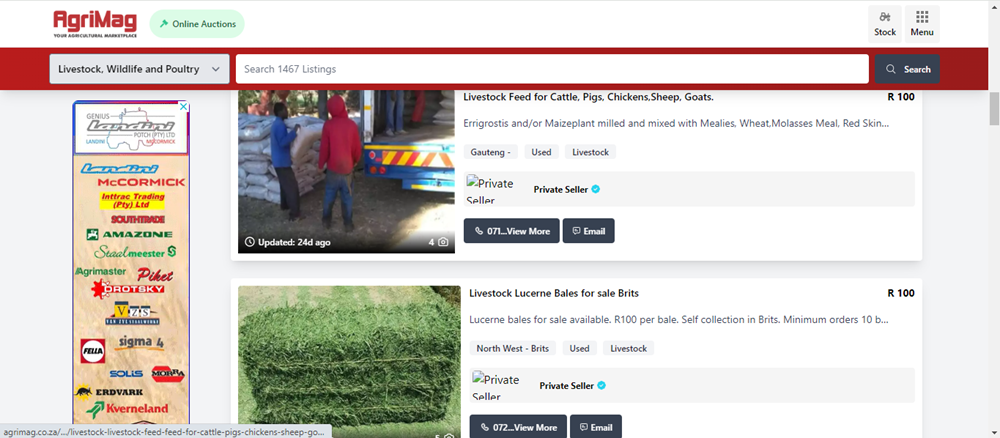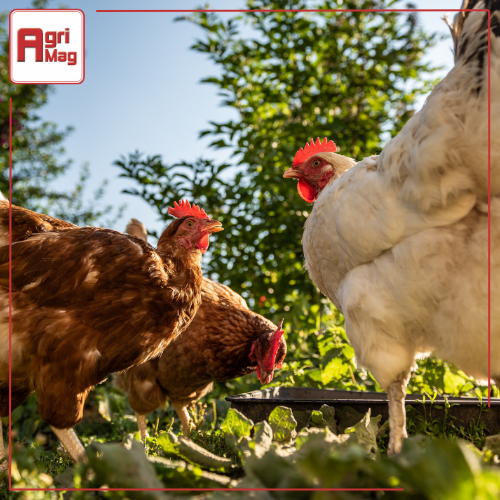
Exploring the Types of Livestock Feed for South African Farming
Date: 29/03/2022
Do you know that there are different types of livestock in farming, each requiring specific nutritional needs? One crucial aspect of livestock management is providing them with appropriate feed to ensure their health, productivity, and overall well-being. In South Africa, where agriculture plays a significant role in the economy, understanding the types of livestock feed available is essential for farmers to make informed decisions. Let's delve into the various types of livestock feed commonly used in South African farming practices. Start your search for Livestock, Wildlife and Poultry on AgriMag.

Types of Livestock Feed
Pasture and Forage:
Pasture and forage form the backbone of livestock nutrition in South Africa. Grass, legumes, and other forage crops are rich sources of nutrients essential for the health of cattle, sheep, and goats. South Africa's diverse climatic conditions allow for a wide range of pasture and forage options, including kikuyu grass, clover, and alfalfa. Proper pasture management is crucial for ensuring continuous access to high-quality feed throughout the year.
Concentrates:
Concentrate feeds provide concentrated sources of energy, protein, vitamins, and minerals to supplement the diets of livestock. These feeds are particularly important during periods of high energy demand, such as lactation, growth, and reproduction. Common concentrates used in South African farming include maize, soybeans, sunflower seeds, and cottonseed meal. Farmers often formulate concentrate mixes tailored to the specific nutritional requirements of their livestock.
Roughages:
Roughages, such as hay and straw, are valuable sources of fiber in livestock diets. They aid in proper digestion and help prevent digestive disorders like bloat and acidosis. In South Africa, various types of roughages are used depending on availability and cost, including oat hay, lucerne hay, and wheat straw. Proper storage and handling of roughages are essential to maintain their nutritional quality and prevent spoilage.
Supplements:
Supplements are additional feed components added to the diet to address specific nutritional deficiencies or enhance performance. Common supplements used in South African livestock farming include mineral mixes, salt blocks, and vitamin supplements. These supplements help ensure that livestock receive all the essential nutrients required for optimal growth, reproduction, and overaull health.
Protein Sources:
Protein is an essential nutrient for livestock growth, muscle development, and overall health. In South African farming, various protein sources are utilised to meet the protein requirements of different livestock species. Soybean meal, canola meal, and sunflower meal are common protein-rich feeds used in livestock diets. These sources are often incorporated into concentrate mixes or fed as supplements to ensure adequate protein intake for optimal animal performance.
By-Products:
By-products from various industries, such as milling and brewing, can serve as valuable livestock feed ingredients. Examples include maize bran, wheat bran, and brewers' grains. These by-products are often rich in nutrients and can be cost-effective feed options for farmers. Incorporating by-products into livestock diets not only helps reduce waste but also provides additional nutritional benefits to the animals.
Silage:
Silage is a fermented feed made from green forage crops, such as maize, sorghum, or grass, which are harvested and stored under anaerobic conditions. Silage serves as a valuable feed option, especially during periods of limited pasture availability, such as winter or drought. In South Africa, silage production is common among livestock farmers, providing a reliable source of high-quality feed for their animals year-round.
Specialty Feeds:
Some livestock species may have specific dietary requirements or preferences that necessitate the use of specialty feeds. For example, dairy cows may require feeds with higher energy and protein content to support milk production, while poultry may benefit from feeds formulated with added vitamins and minerals for optimal egg production and shell quality. Understanding the unique nutritional needs of different livestock species is essential for selecting the appropriate specialty feeds.

Overall, the diverse types of livestock feed available in South Africa offer farmers a wide range of options to meet the nutritional needs of their animals. From pasture and forage to concentrates, roughages, supplements, protein sources, by-products, silage, and specialty feeds, each type of feed plays a vital role in ensuring the health, productivity, and profitability of livestock farming operations. By incorporating a balanced diet that includes a variety of feed sources, farmers can optimise the performance and well-being of their livestock. Start your search for Livestock, Wildlife, and Poultry on AgriMag to explore a wide range of feed options and enhance your farming practices.
Categories:
Common category
Category Search:
Latest articles:

Choosing the Right Breed for South African Climates

Managing Livestock Health in Drought Conditions: Tips for Farmers

Embracing Organic Farming in South Africa: Minimal Resources

